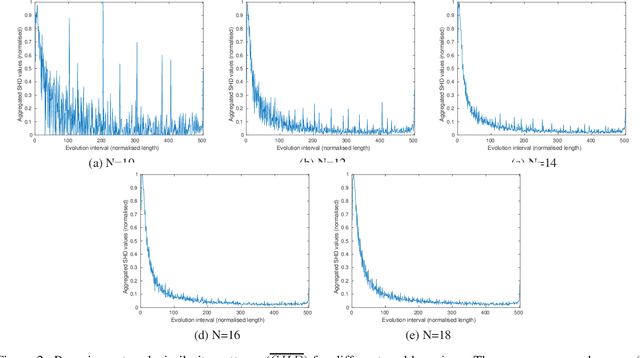Myriam R. B. S. Delgado
Multi-layer local optima networks for the analysis of advanced local search-based algorithms
Apr 29, 2020



Abstract:A Local Optima Network (LON) is a graph model that compresses the fitness landscape of a particular combinatorial optimization problem based on a specific neighborhood operator and a local search algorithm. Determining which and how landscape features affect the effectiveness of search algorithms is relevant for both predicting their performance and improving the design process. This paper proposes the concept of multi-layer LONs as well as a methodology to explore these models aiming at extracting metrics for fitness landscape analysis. Constructing such models, extracting and analyzing their metrics are the preliminary steps into the direction of extending the study on single neighborhood operator heuristics to more sophisticated ones that use multiple operators. Therefore, in the present paper we investigate a twolayer LON obtained from instances of a combinatorial problem using bitflip and swap operators. First, we enumerate instances of NK-landscape model and use the hill climbing heuristic to build the corresponding LONs. Then, using LON metrics, we analyze how efficiently the search might be when combining both strategies. The experiments show promising results and demonstrate the ability of multi-layer LONs to provide useful information that could be used for in metaheuristics based on multiple operators such as Variable Neighborhood Search.
On resampling vs. adjusting probabilistic graphical models in estimation of distribution algorithms
Feb 15, 2019



Abstract:The Bayesian Optimisation Algorithm (BOA) is an Estimation of Distribution Algorithm (EDA) that uses a Bayesian network as probabilistic graphical model (PGM). Determining the optimal Bayesian network structure given a solution sample is an NP-hard problem. This step should be completed at each iteration of BOA, resulting in a very time-consuming process. For this reason most implementations use greedy estimation algorithms such as K2. However, we show in this paper that significant changes in PGM structure do not occur so frequently, and can be particularly sparse at the end of evolution. A statistical study of BOA is thus presented to characterise a pattern of PGM adjustments that can be used as a guide to reduce the frequency of PGM updates during the evolutionary process. This is accomplished by proposing a new BOA-based optimisation approach (FBOA) whose PGM is not updated at each iteration. This new approach avoids the computational burden usually found in the standard BOA. The results compare the performances of both algorithms on an NK-landscape optimisation problem using the correlation between the ruggedness and the expected runtime over enumerated instances. The experiments show that FBOA presents competitive results while significantly saving computational time.
 Add to Chrome
Add to Chrome Add to Firefox
Add to Firefox Add to Edge
Add to Edge